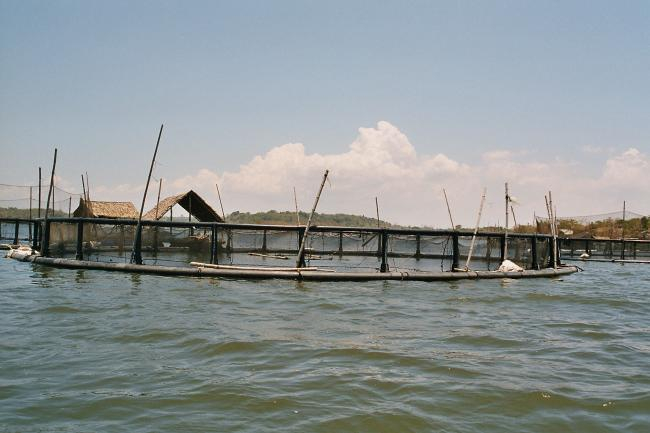Aquaculture is gaining importance for food security worldwide. The majority of the world's aquaculture-produced fish are from Asian countries, where intensive aquaculture practices often prioritize production over ecological and health concerns.
Overfeeding, overstocking and illegal extension of farm sites lead to severe environmental threats, such as eutrophication, hypoxia, biodiversity loss and high disease spreads. Knowledge on culturing practices, environmental impacts and stakeholder decision-making is therefore essential for sustainable human livelihood and future developments.
To address these issues, the ACUTE project investigates an open-cage aquaculture area in Bolinao, Philippines, where past and current aquaculture practices have resulted in a severe deterioration of the coastal ecosystem, which in turn has repeatedly caused high economic losses in aquaculture production. We study the impacts of aquaculture on (I) water quality and organic matter loading, focusing on organic particles and associated metabolic processes leading to oxygen depletion, (II) microbial communities, particularly the distribution and spread of pathogens, (III) the performance of the cultured fish stock, and (IV) we conduct a detailed investigation on the human dimensions and stakeholder decisions towards aquaculture practices.
By this multi- and interdisciplinary approach, we aim to enable a holistic assessment of aquaculture impacts in an ecological as well as socio-economic context, and provide management recommen-dations towards securing sustainable food resources.
Project Partners (Germany) |
International Project Partners |
|---|---|
|
Dr. Andreas Kunzman |
Philippines Adj. Prof. Dr. Wolfgang Reichardt |





